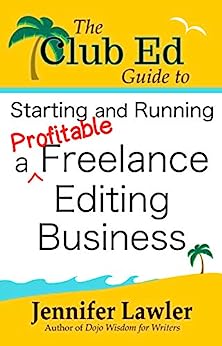Genre: Some Thoughts on Satire
In my post “Unpacking Your Assumptions about Fiction,” I mentioned how some of our assumptions about fiction don’t always hold, and I gave an example of the anti-hero of a comic novel. Which made me remember a conversation I recently had with a colleague about editing satire.
The Message Matters Most
Said colleague pointed out that satire is not edited like other types of fiction and that he thought the most important difference was that in satire, the satirical message (agenda/score to settle/axe to grind) is the main focus, rather than the characters and plot. Then he said, “If my assumption is correct about satirical fiction, how do we evaluate character development, conflict, goals, pacing, plot, setting, etc.? What are the genre expectations?”
This is a great question. I only wish I knew the answer. Well, I do know the answer, and the answer is “it depends.” I recognize that’s not terribly helpful, so I have rummaged around in my brain in order to produce some further thoughts (otherwise this would be a very short blog post). Here they are.
First, let me say that I agree with the original assumption, that the message in this case is more important than the character. Think of Arthur Dent of The Hitchhiker’s Guide to the Galaxy, Candide, the Connecticut Yankee in King Arthur’s court, and so on. We don’t remember specific details of character and beyond broad strokes (tilting at windmills, encounters with Lilliputians) we don’t remember much about plots. We do remember the message.
Any type of humor can be a challenge to edit from a developmental standpoint, but satire is a very different animal from other types of fiction where we typically care about things like plot plausibility and character development. Satire, unlike comic or humorous writing, doesn’t have to be funny, of course, but it usually is. So it’s important to consider this element. Authors sometimes think they are funnier than they actually are.
Avoiding Sermons
In satire the message is the thing and the characters and plot events serve as vehicles of that message. But that still doesn’t mean the author can stop everything in order to let the main character declaim for forty-seven pages. Satire works best when it uses subtext, exaggeration, and contrast to make the point. Sermonizing is too on-the-nose. Think in terms of show versus tell: we want to see the characters and plot in action to prove whatever point the author is trying to make, not listen to them talking about it. (This is a common mistake whenever writers privilege the message.)
And while the plot events and characters’ actions might be ridiculous and implausible, their emotions and thought processes still need to be identifiably human—we need to be able to see ourselves in the characters.
Character Still Matters – But Only to Serve the Message
What passes for character development in satire is often for the main character to begin as a naive waif who is thrust into the buffeting winds of life and learns whatever the message is. Some authors make the mistake of starting off with a cynical, jaded protagonist. But if the character has already decided life is meaningless and has rejected all moral and religious structures, why does it matter that capitalism is dehumanizing or that war is hell?
The satire becomes sharper if the main character is some kind of sunny Pollyanna—this allows for contrast and hyperbole. It also allows the pretense to be stripped away. Whatever the character decides to do about what they’ve learned (including doing nothing), the point is that the character is used to illustrate the message.
One Message at a Time
I would also say that the premise or situation also needs to be very clear. The author needs to tackle one message, not fifteen. Muddying the waters is death to satire. (Which is why it’s easier to do at a shorter length.)
The author also needs to have an unusual, different, fresh take on the issue in question; we already know war is hell. This is where the hyperbole and show-don’t-tell elements are so crucially important.
Other than that, though, it’s very tricky to get into specifics about what a satire should or shouldn’t do—but I hope this helps a little.
Join the Club!
New to story editing? Begin at the beginning.


